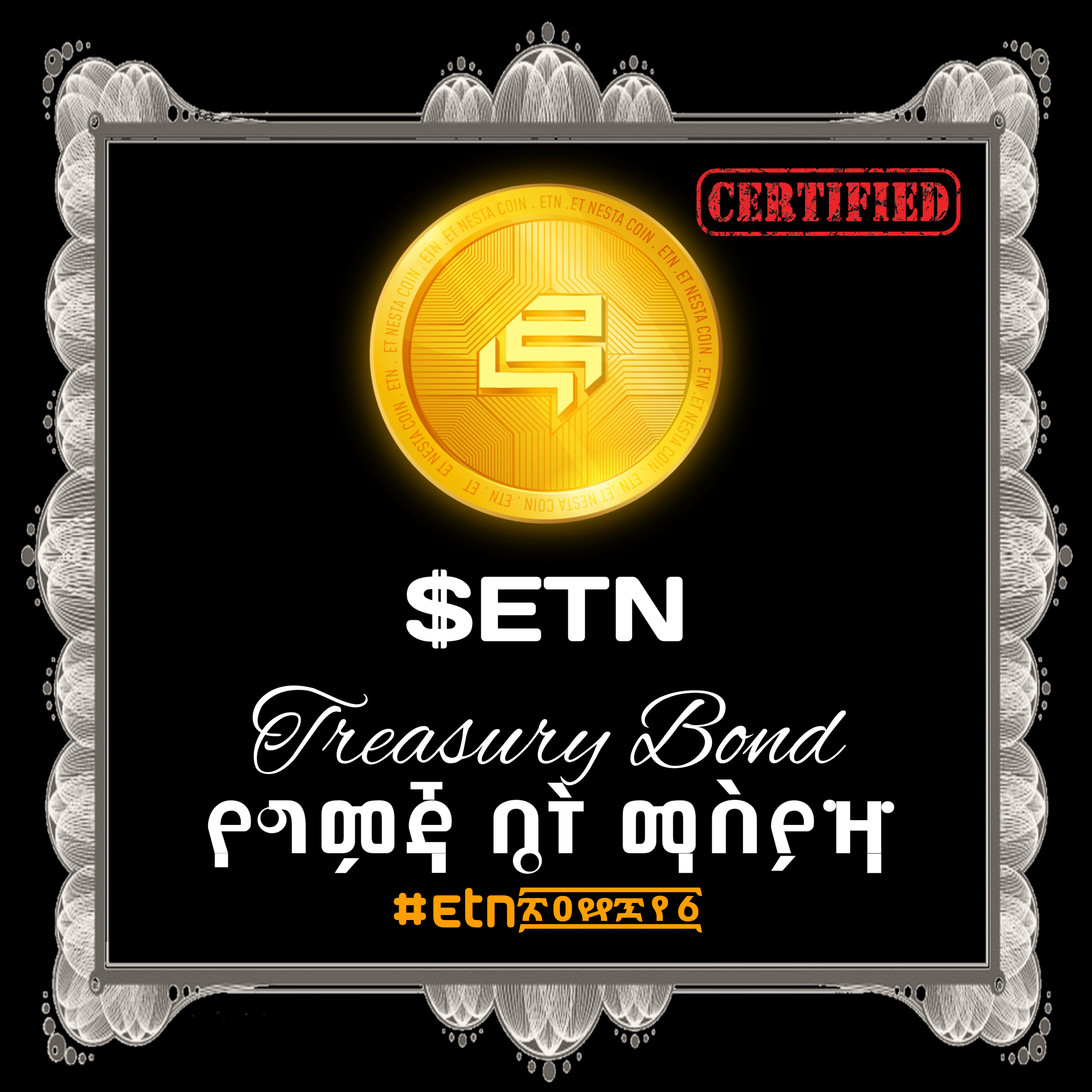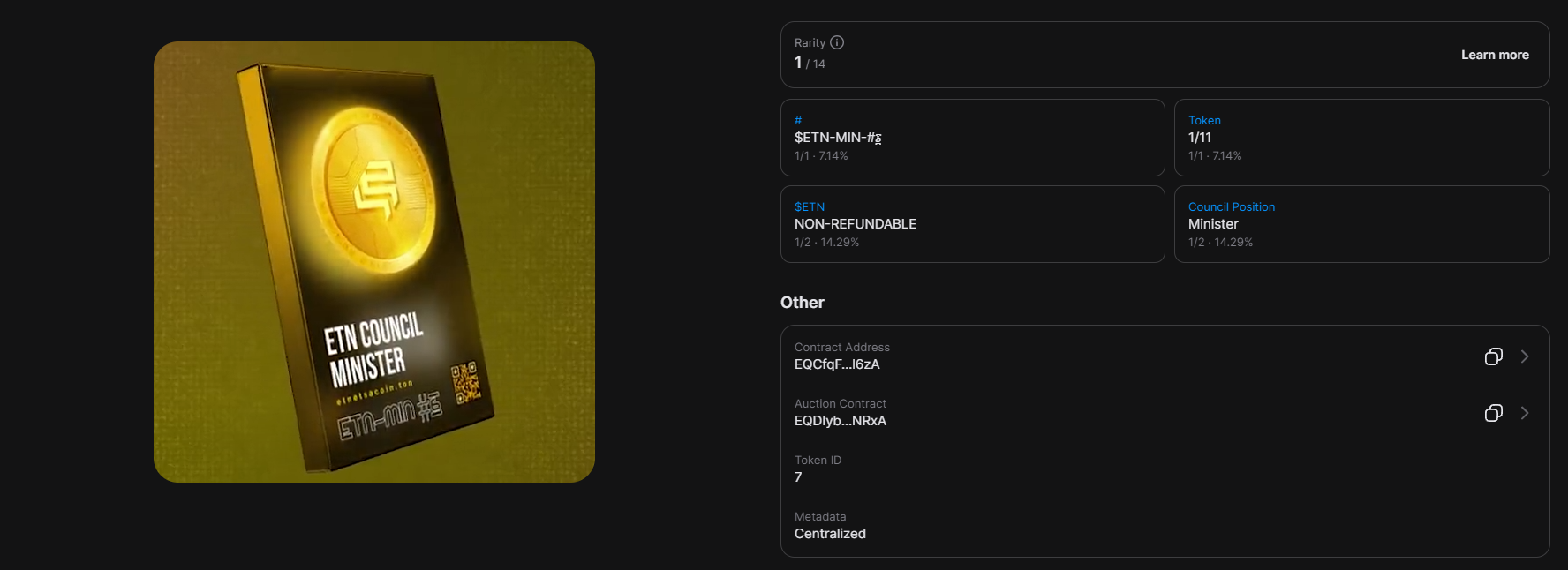🛡️ Overview
The $ETN ecosystem is designed to empower those who invest in and support the project, creating a decentralized and community-driven governance structure. This structure is composed of Treasury Bonds, special NFTs, and SBT items that ensure the project remains in the hands of its investors while maintaining a level of oversight and continuity from the development team.
💰 Treasury Bonds
🏦 $ETN Treasury Bond
Total Supply: 200 $ETN Treasury Bonds
Eligibility: These bonds are awarded to individuals who donated to the $ETN Liquidity Pool.
Functionality:
- Holders of these bonds can connect their wallets to the $ETN ecosystem.
- 🤖 A bot will verify ownership of the Treasury Bond NFT.
- 🔐 Verified holders gain access to a closed, private chat that serves as the governing body for the $ETN coin.

🏛️ Governance Structure
🔗 SBT (Soulbound Tokens)

Total Supply: 8 SBT items
Ownership: Permanently held by the wallets of the development team members.
Restrictions: These tokens cannot be removed or sold.
Purpose: Ensure that the developers remain leaders within the project without having enough voting power to overpower the council members.
🧑⚖️ Governance NFTs

Total Supply: 11 Governance NFTs
- 10 $ETN Council Minister NFTs: Available for purchase at 10 TON each on GetGems.
- 1 $ETN Investor NFT: Available for purchase at 100 TON.
🏅 Council Ministers
Role: Council ministers, one level below the council leaders, have the highest voting power and influence in the ecosystem that isn't part of the development team.
Responsibilities: Shape the future of $ETN by participating in key decisions, proposing initiatives, and guiding the project's development.
⚙️ Governance Process
🔗 Connection and Verification:
- Bondholders connect their wallets to the $ETN platform.
- 🤖 A bot verifies the presence of the $ETN Treasury Bond NFT.
🔒 Access to Governance Chat:
- Verified bondholders are granted entry to a private chat where discussions and decisions about the $ETN project take place.
🗳️ Decision Making:
- Council members propose and vote on initiatives, changes, and future directions for the project.
- Developers, through their SBT items, participate without holding majority voting power, ensuring community-driven governance.
🌟 Impact on the Project
🏛️ Decentralization and Community Control:
- The governance structure ensures that those who have invested in the project have a significant say in its future.
- By limiting the voting power of the developers, the project maintains its decentralized nature and reduces the risk of centralization.
🌱 Sustainable Development:
- Continuous involvement of the development team ensures technical and strategic continuity.
- Community-driven decision-making fosters innovation and aligns the project's direction with the interests of its investors.
🎯 Enhanced Engagement:
- Exclusive access to the governance chat encourages active participation and engagement from bondholders.
- The limited number of council NFTs creates a prestigious and influential position for their holders.
🔮 Conclusion
The $ETN ecosystem is built on a foundation of decentralization, community involvement, and sustainable development. By leveraging a combination of Treasury Bonds, Governance NFTs, and SBT items, the project ensures that its future is shaped by those who have invested in its success while maintaining essential oversight from its developers. This innovative governance model positions $ETN as a leader in the realm of decentralized finance, driven by a dedicated and empowered community.